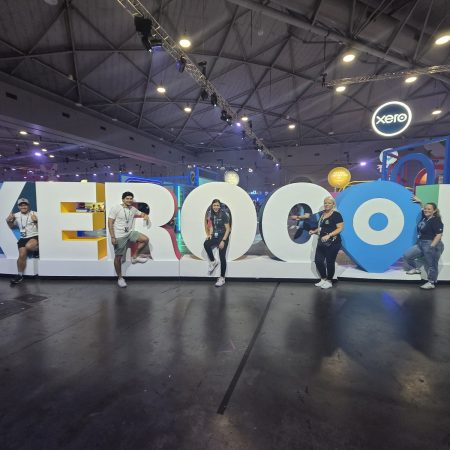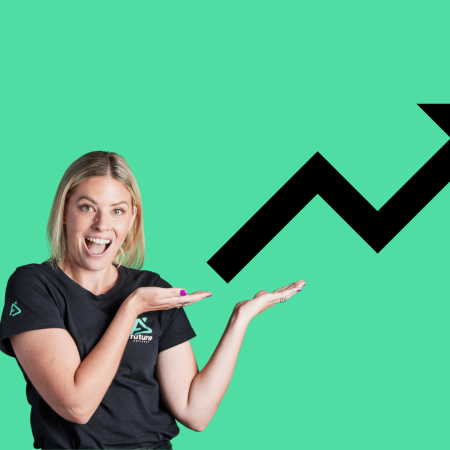What’s the Deal With Entertaining, Meals and Fringe Benefit Tax?
Let’s talk about everyone’s favourite topic – food! Specifically, meals that you provide to your clients or employees. We all know that treating your clients or rewarding your employees with a nice meal can go a long way in building business relationships and boosting morale. But, have you ever wondered if the cost of these meals is tax deductible? We bet yes.
Key highlights:
- Meal Entertainment & Tax – Meals for employees or clients may be subject to Fringe Benefits Tax (FBT) and are only deductible if FBT is paid.
- FBT Exemptions – Sustenance (e.g., office snacks, training meals) is tax-deductible, while minor benefits under $300 may be exempt from FBT.
- Avoid Common FBT Mistakes – Misclassifying expenses, poor record-keeping, and failing to track exemptions can lead to tax issues.

What falls under Meal Entertainment?
The answer to the above depends on whether the meal falls under the category of “Meal Entertainment”. This includes providing entertainment by way of food or drink, accommodation or travel related to such entertainment, or reimbursing expenses incurred by employees for the above.
So, if you’re taking your employees out for an elaborate lunch or meeting clients at a restaurant, these costs are considered Meal Entertainment.
The catch? If you want to claim a tax deduction and GST credit, you’ll need to pay the appropriate amount of Fringe Benefits Tax (FBT). Otherwise, no deduction is allowed, and the GST cannot be claimed.
Are Staff Rewards Considered Entertainment or Fringe Benefits?
It depends on the nature of the reward. A meal at a restaurant as a reward for good performance is considered entertainment and subject to FBT. In contrast, a simple meal served on business premises during work hours may not fall under the entertainment category and could be tax-deductible. Non-cash perks, such as gift cards or memberships may be classified differently and subject to distinct tax rules, making it essential for businesses to understand the implications of each type of reward.
What falls under Sustenance?
But don’t worry, not all food-related expenses fall under Meal Entertainment. Sustenance, which is food or drink that is not in the nature of entertainment, is tax deductible and GST credits are claimable. This includes things like morning and afternoon teas, meals on premises provided during meetings or training, or meals consumed while on overnight travel.
Any other food and entertainment FBT exemptions?
There are also some exemptions available that can reduce or eliminate the FBT liability. The most common exemption is the Minor and Infrequent Exemption, which applies when the benefit cost is less than $300 (including GST) per benefit, per employee, and the benefit is not provided frequently. For example, taking an employee to lunch to reward high performance would likely be exempt.
There are also some exemptions available that can reduce or eliminate the FBT liability. The most common exemption is the Minor and Infrequent Exemption, which applies when the GST inclusive cost of the benefit is less than $300 per person and the benefit is not provided frequently. For example, taking an employee out to lunch to reward high performance would likely be exempt.
However, be aware that if you provide elaborate meals on your premises, such as Friday night drinks or Christmas parties, these may be considered entertaining and could potentially affect your tax deduction.
How Is Entertainment Taxed Differently From Standard Fringe Benefits?
| Feature | Fringe Benefit Tax (FBT) | Business Expense Deduction |
| Purpose | Tax on certain benefits provided to employees (or associates) in connection with their employment, in addition to salary/wages. | Reduces taxable income by deducting eligible expenses incurred in running a business to generate assessable income. |
| Recipient of Benefit/Expense | Employee (or associate, such as family member) | Business (can be sole trader, partnership, company, trust) |
| Type of Item | Benefits like company cars, entertainment, low-interest loans, accommodation, etc. These are provided to employees. | Expenses like rent, salaries, advertising, supplies, travel, etc. These are incurred by the business. |
| Tax Treatment | FBT is payable by the employer on the grossed-up taxable value of the fringe benefit. The benefit itself is generally not income tax for the employee (though it is reported if over a certain threshold). | Expenses are deducted from business income to arrive at taxable income. This reduces the business’s income tax liability. |
| GST Implications | GST may be payable on the provision of the fringe benefit. GST credits may be claimable in some circumstances. | GST credits may be claimable on eligible business expenses where GST was included in the price. |
| Deductibility (for Employer) | Generally not deductible for the employer (except in very limited circumstances). The FBT itself is deductible. | Generally deductible for the business, provided the expense is related to generating assessable income. |
| Reporting | Reported on the employer’s FBT return. Certain fringe benefits are also reported on the employee’s income statement (if the grossed-up taxable value exceeds $2,000). | Business expenses are generally recorded in the business’s accounting records and used to calculate taxable income. |
Basically, FBT is like a tax on the nice things you give your employees, while business expense deductions are a way to lower your tax bill by spending money on the not-so-nice things. It’s a wild world of tax, my friend. Just remember to keep good records, or the taxman might come knocking. And nobody wants that.
What Are the Common Pitfalls in FBT Reporting for Meals and Entertainment?
Watch Out for These Traps!
When it comes to reporting Fringe Benefits Tax (FBT) for meals and entertainment, it’s easy to slip up. One of the most common mistakes is misclassifying expenses, thinking a fancy client lunch is a deductible business expense when it actually falls under FBT.
Another pitfall is mixing up deductible and non-deductible costs—failing to separate entertainment expenses from basic sustenance. And let’s not forget the importance of proper documentation; without receipts, invoices, and clear records, businesses could find themselves in hot water with the tax office.
Keep Your Records Spot On
Staying compliant doesn’t have to be a headache if you have good record-keeping habits. Businesses should maintain receipts and tax invoices for all meal expenses, document the business purpose of each expense, and track employee travel when meal claims are involved. Having a clear company policy on entertainment expenses also helps avoid confusion. Investing in payroll and accounting software can make FBT tracking a breeze, ensuring accurate reporting and fewer compliance worries. Pro tip: Set up separate expense tracking categories in your accounting software (like Xero) to automatically distinguish between entertainment and sustenance—it’ll save you hours come tax time.
FAQ
Do coffee meetings count as business entertainment?
It depends. Quick coffee catch-ups focused on work are usually considered “sustenance,” not entertainment, and therefore not subject to FBT. However, if the meeting becomes more social and less about business, it might be classified as entertainment, which could have FBT implications. The key is to consider the primary purpose of the meeting.
Can businesses claim GST credits on meal expenses?
Generally, no. Due to FBT rules, businesses usually can’t claim GST credits on meal entertainment expenses. This is a common point of confusion. There are limited exceptions, such as meals provided during training sessions. It’s best to check with a tax professional for specific advice.
What is the threshold for minor benefits exemption?
According to the ATO, the minor benefits exemption allows employees to receive small, infrequent benefits without triggering FBT. The current threshold is generally under $300 per employee, including GST. Both the cost of the benefit and how often it’s provided are considered.
How often do FBT rates change?
FBT rates are typically aligned with the top marginal income tax rate and usually remain consistent for the entire FBT year (April 1st to March 31st). While changes are possible, they are not frequent. It’s always a good idea to check the ATO website for the latest FBT rate.
There you have it – the ins and outs of providing meals for your clients and employees. Remember, if you have any questions about your tax liabilities, it’s always a good idea to consult your trusted advisor. At Future Advisory, we help businesses navigate tax complexities with confidence. Now, who’s hungry?
Need help managing your bookkeeping and tax obligations? Check out our bookkeeping services to keep your business finances on track.













